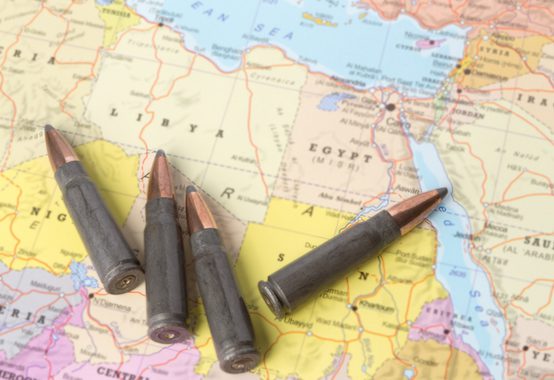Taking the Wrong Side in Libya

Last week, I pointed out the destabilizing role of Saudi Arabia, the UAE, and Egypt in backing Khalifa Haftar’s offensive against Tripoli. It appears that the Trump administration is abandoning its previous opposition to the offensive and backing Haftar against the internationally recognized government:
When coupled with Reuters report that U.S. joined Russia in blocking a UNSCR calling for an immediate ceasefire, it seems clear Trump administration has aligned itself with Haftar. Precipitous error that promises more violence and instability in Libya. Creates opening for IS. https://t.co/RR0rw3ttwM
— Andrew Miller (@AndrwPMiller) April 19, 2019
The Reuters report that Miller mentions was published yesterday, but it didn’t offer an explanation for the U.S. rejection of the proposed resolution calling for a ceasefire:
Russia objects to the British-drafted resolution blaming eastern Libyan commander Khalifa Haftar for the latest flare-up in violence when his Libyan National Army (LNA) advanced to the outskirts of Tripoli earlier this month, diplomats said.
The United States gave no reason for its position on the draft resolution, which would also call on countries with influence over the warring parties to ensure compliance and for unconditional humanitarian aid access in Libya, which has been gripped by anarchy since Muammar Gaddafi was toppled in 2011.
We may have our explanation for the U.S. position now. Trump appears to be throwing our government’s support behind the man responsible for escalating the fighting in Libya, and it seems that he is doing so at the behest of the UAE and perhaps the Saudis and Egypt as well. When I saw the news about Trump’s call with Haftar, I said:
He really does do whatever the Saudis/UAE want https://t.co/mO79878Hez
— Daniel Larison (@DanielLarison) April 19, 2019
Mark Leon Goldberg responded:
What's interesting is that this call to General Haftar came moments after his call with UAE's MBZ!
— Mark Leon Goldberg (@MarkLGoldberg) April 19, 2019
The administration probably wouldn’t publicize the call with Haftar unless they wanted to show support for him. If the U.S. were still opposed to Haftar’s offensive and if it still supported the government in Tripoli, Trump wouldn’t be having a friendly chat with him and our government wouldn’t be blocking a ceasefire resolution at the U.N. The Trump administration is taking sides in Libya’s civil war, and thanks to the president’s bad judgment our government is taking the wrong side.
If I had to guess, Trump’s newfound support for Haftar is probably based on propaganda from the Saudis and the UAE that he is opposed to jihadists and therefore should be considered a “stabilizing” force in Libya. The reality is that Haftar’s offensive threatens the stability of the entire country:
NEW: #Haftar’s advance into #Tripoli threatens not only the stability of #Libya’s largest city, but of the entire country.@mel_pavlik, @MENASTREAM, @a_carboni, and Kars de Bruijne map the offensive and unpack ACLED's latest data on the fighting: https://t.co/AgZC3lb5A7 pic.twitter.com/0JCS1Q0vmq
— Armed Conflict Location & Event Data Project (@ACLEDINFO) April 19, 2019
Libya needs an end to the fighting, and the more support and encouragement Haftar receives from outside governments the less likely it is that the war can be brought to an end.